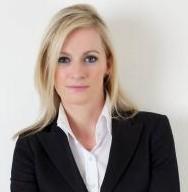
African-American author, feminist and scholar, bell hooks, once observed that “language is also a place of struggle”. Although hooks was using the phrase to describe the struggle of African Americans to be heard, arguably it has some application to the feminist cause, and specifically to the way we describe female professionals.
The Bar Council has been examining issues of gender diversity within the Bar, and the retention of female juniors for a number of years. The Bar Standards Board’s ‘Women at the Bar’ report published in 2016 noted in its conclusions that while there were many examples of good practice and ‘changing attitudes’ within the profession, ‘there remain definite areas of concern that suggest female barristers are still facing disproportionate barriers within the profession compared to their male counterparts’.
HHJ Emma Nott writing in Counsel on behalf of the Bar Council Equality, Diversity and Social Mobility Committee (in April 2018)( https://www.counselmagazine.co.uk/articles/gender-the-bar-and-fair-access-work-1) examined whether women were being ‘given fair access to the most serious, complex (and the most lucrative) crime’ cases. Her findings, based on data from the Supreme Court as well as Southwark Crown Court, were not encouraging. In one day, in July 2017, data from Southwark Crown Court, which deals with the majority of such cases, of the nine cases listed that day and the 52 advocates appearing, only seven (13.5%) were female.
Further evidence of this gender imbalance in the self-employed bar can be found in Rachel Barrett’s article (June 2020) https://www.counselmagazine.co.uk/articles/is-a-pandemic-the-right-time-to-be-thinking-about-diversity-issues-at-the-bar-).
Ms Barrett very rightly raised the issue of the role language has to play in our perceptions of female barristers. In this context, the question arises whether the legal directories have a role to play when it comes to this gender imbalance. Should the directories be addressing the manner in which women barristers are described in references provided to the editorial team more directly? Is the language used to describe women barristers softer than that used to describe their male counterparts?
Back in December of last year Allen & Overy announced that it would be looking to improve how its lawyers described female barristers when recommending them to the legal directories.
A&O’s IP global head David Stone said at the time that the firm was introducing a project to monitor the language used to describe female barristers, noting that the adjectives used in references was often ‘softer’ and less aggressive than that used to describe male counterparts.
Arguably the language used in the directories is simply a reflection of that used by the legal profession as a whole. After all, references used in the directories are based on quotes gained from conversations and emails between researchers and referees put forward in directory submissions.
John van der Luit-Drummond, editor of the Legal 500’s UK Bar section, explains how the rankings are compiled: “We take various factors into account when compiling our rankings, and while the importance of these can vary by practice area, the two single most important factors are, first credible recent work highlights and, then second, referee and market feedback”.
The subconscious bias of language is a larger issue for the legal profession and society in general to address, but A&O’s project is an important first step in considering gender bias within organisations.
In a blog post published in 2018 (https://www.linkedin.com/pulse/lawyers-beware-unconscious-bias-when-acting-referee-john/) Mr van der Luit-Drummond noted that Legal 500 researchers do not after all put words in the mouths of referees, and that the profession itself has a part to play in ensuring that gender neutral language is used.
When speaking to him recently, he pointed out that the directory was still getting similarly gender-biased quotes a year after his initial blog post was published, relating to female barristers. “There’s nothing wrong with describing someone as being ‘good to work with’ or ‘user friendly’, but we were still finding that certain terminology, such as ‘has a massive intellect’, was only being reserved for male barristers.
This year the Bar editor has decided to deal with the issue head on during the research process by requesting in emails sent out to referees that gendered adjectives be avoided when describing the individual strengths and qualities and/or weaknesses of a barrister.
It is most definitely a step in the right direction, and has, according to Mr van der Luit-Drummond, led to a marked change in terminology, although he admits wryly that some sections of the profession is still unclear about what exactly a gendered adjective is.
“My advice to lawyers would be to think about how you would want to be described, and to have that at the forefront of your mind when you are explaining why this barrister is brilliant and deserving of a ranking”, he says. “It’s as simple as that.”
Wise words, and ones that we hope will not only lead to a superficial change in terminology but also eventually in perceptions.
Melissa Davis is CEO of London-based MD Communications, a full service, specialist legal reputation consultancy with a team of 25, spanning several jurisdictions and serving legal clients in most corners of the globe. She's also a member of the advisory board of the IBA Law Firm Management Committee Business Development Working Group (of which she’s a former chair ).
MD Communications is an international reputation management consultancy supporting clients in the professional services sector all over the world. They deal with all aspects of communications including legal directories, social media strategy for lawyers, barristers and law firms, legal PR, crisis communications, brand management, thought leadership, international growth strategy, training to build your media profile, and all aspects of reputation management.